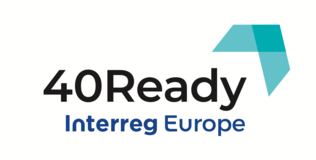Three quarters (75 %) of Lithuanian SMEs manufacturing companies, which have benefited from EU investment for employee training, choose to develop the technical skills of their employees. Almost half (44 %) of the surveyed SMEs organize data and IT competence building training for employees, and a little less (39 %) - social skills.
Such results have been demonstrated by the analysis of the projects financed by the ESF for the 2014–2020 programming period. The analysis was performed by the European Social Fund Agency in the framework of 4.0 Ready project.
The results of the analysis were presented on January 28th to the representatives of the Ministry of Economy and Innovation of the Republic of Lithuania, the Ministry of Education, Science and Sports of the Republic of Lithuania, the Ministry of Finance of the Republic of Lithuania, the Ministry of Social Security and Labour of the Republic of Lithuania, vocational training, business, science, and innovation organizations.
The aim of the analysis is to assess how companies are preparing for Industry 4.0 and what competencies they prefer to develop. The projects, implemented by the SMEs working in the main Lithuanian industrial sectors (food, chemical, furniture, wood, machinery, and equipment), were examined.
The analysis revealed that SMEs usually provide technical, data and IT training, and much less often social or personal knowledge development training. SMEs could only do this through a few different projects. When planning future funding directions and measures, it is proposed to facilitate the possibility for companies to train their employees in various competencies in only one project.
The conclusions and recommendations also emphasize that, due to the constraints of project funding conditions, most funding instruments did not provide training for top managers and managers directly accountable to them, as well as personal competencies such as team building, organizational culture, personal effectiveness training (e. g. conflict resolution, stress management, communication, motivation, time planning, emotional intelligence, leadership, positive thinking, creativity and etc.). According to the researchers, it is necessary to consider the forecast for competencies of employees of Lithuanian SMEs, which predicts that by 2030 the need for managers in various fields will grow, and create conditions for raising leadership competencies, especially in SMEs, because in companies innovative, technological and other changes begin and depend on the knowledge and attitude of the manager.
The analysis showed that the investments of the EU structural funds create conditions for a rather wide range of forms of competence development: traditional training, apprenticeship training, competence voucher, internships. However, in view of the changing industrial situation and the transition to the digitalisation of production, alternative forms of competence development, such as virtual reality, should be introduced or training adapted to the increasingly relevant form of teleworking.
Assessing the activity of companies, it was found that some companies participated in employee training projects 2-8 times. For this reason, to attract as many diversified companies as possible, researchers recommend wider publicity of EU funding opportunities for employee training.
In addition, when planning future financing directions and measures for Lithuanian companies, it is recommended to take into account the experience of currently implemented measures, assess existing shortcomings, improve financing conditions, for example: avoid additional bureaucratic requirements and thus promote active participation of companies, separate calls for large and SMEs companies, increase the use of a continuous project selection form.
Here below some pictures taken during the online event:
















